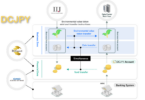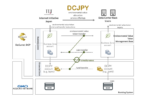Yesterday, US-based blockchain startup Spring Labs announced it won a contract to develop a national property lien registry for energy-efficiency financing. The company’s mission is to create decentralized credit referencing and identity data. It is not dissimilar to Equifax, but without the same sort of risk of data getting hacked.
The contract was awarded by a consortium of Ygrene Energy Fund California, Renovate America, Energy Efficient Equity and PACE Funding Group. The group will use the platform to query Property Assessed Clean Energy (PACE) assessment information.
PACE is a mechanism to finance energy efficiency and renewable energy improvements. It is used for commercial and residential properties who wish to reduce their energy costs. PACE programs allow a property owner to finance the up-front cost of energy and other real estate improvements.
The repayment structure spans 10-20 years, with the repayments made through property assessments and settled alongside property taxes. Participating in a PACE program involves the debt being secured on the real estate. The uniqueness of this model is that the debt is connected to the property and not the owner.
Under the program, to date 200,000 homeowners have financed $5 billion in energy-efficiency and other improvements. Additionally, $800 million has been used for commercial properties.
“Having the ability to query a registry of PACE financing applications and assessments in real-time represents an enhancement for the industry,” said Stephen Tich, COO at Ygrene. “This registry will further enable the PACE industry to offer the most comprehensive and flexible clean energy financing solutions, benefiting our contractors and customers.”
This contrasts with the current situation where the data is kept by the local government, so access the data will be slow.
With a blockchain-based registry, which Spring Labs is planning to build using Spring Protocol, all stakeholders can use a single platform to access PACE assessment data in real-time. This will also allow lenders to share property lien and assessment information without revealing personal details. In turn, it can also prevent double funding of property improvement installations.
If a new owner wants to make additional improvements, the consortium will be able to see any existing ongoing obligations and how viable higher repayments might be.
Meanwhile, Spring Labs is looking to scale this registry to other property-related transactions, such as mortgages. “We are pleased to announce our latest product utilizing the Spring Protocol, a lien registry for the PACE industry. We believe that this technology can form the foundations of a blockchain-based national mortgage registry,” said Adam Jiwan, CEO at Spring Labs.
A few months back, Spring Labs announced a $23 million funding round with participation from General Motors Ventures among many others.






